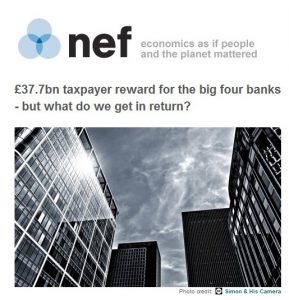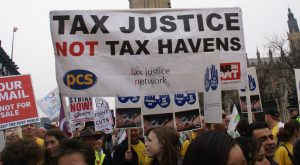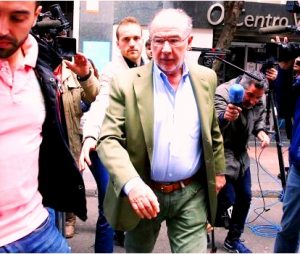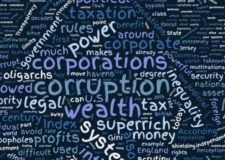Former IMF chief arrested for tax fraud
The former head of the IMF, Rodrigo Rato, has been arrested in Spain over claims that he has illegally hidden wealth offshore to evade taxes. He is also accused of mismanaging funds at Bankia, the bank he used to run but which had to be rescued by the state in 2012.
Rato is just one of a number of executives who Bankia are pursuing for 133m Euros. But he is by far the most high profile, having been a former minister of Economy and Vice President. His arrest is sure to cast a cloud over Spain’s political class, who are under attack from Podemos, the relatively new anti-austerity political party.
However for the IMF the arrest of a former boss for tax evasion could be seen as progress for the organisation. The last head of the IMF to be arrested was Dominique Strauss-Khan in 2011, accused of attempted rape. The charges were later dropped but Strauss-Khan has said the incident was a moral fault.
Indicted Swiss bankers living it up in Switzerland
Over 50,000 US citizens have admitted to illegally evading taxes by hiding money in secret Swiss bank accounts. However, only one Swiss banker, Bradley Birkenfeld, an American, has ever received a significant prison sentence. Birkenfeld revealed to the US authorities the widespread use of offshore accounts by wealthy Americans.
How has this happened? Because setting up offshore secret bank accounts for the purposes of evading taxes is not a crime in Switzerland, so it does not extradite people.
This week Bloomberg published an article which looked at the lives of some of the 21 people indicted in the United States but still ‘at large’ in Switzerland.
Do they cower in Zurich, disgraced for being accused of helping the global super wealthy rip-off governments the world over who have been forced to make huge cuts to social welfare as a result?
No, they still have their jobs in the financial sector, and are still highly paid. As one indicted Julius Baer employee told Bloomberg, ‘I have a very pleasant employer’.
 HSBC threatens industrial action in protest over regulation
HSBC threatens industrial action in protest over regulation
The Chairman of HCBC Holdings has said it will review whether to keep its headquarters in the UK after the future of banking regulations becomes clearer.
The statement was made in response to an investor in Hong Kong who told the bank to ditch the UK.
According to Bloomberg, investors are particularly irked by the bank levy, a tax on banks, placed on HSBC by the British Government. This cost HSBC £750m last year.
Some might consider this reaction from investors ungrateful given the huge benefits the bank receives from the British taxpayer. According to a report by the New Economics Foundation in December 2013, HSBC received a subsidy in the form of cost savings of over £4bn a year because of the implicit guarantee the bank gets from the UK government.
EIB told to improve policies on tax havens
Re:common and Counterbalance, NGOs based in Italy and Belgium, have published a report that calls on the European Investment Bank and other international finance institutions to take more action to tackle tax havens.
The EIB was once a leader in this area, as it was one of the first banks to have a policy on tax havens. But the report identifies several failings and incidences where public money from the EIB has ended up in tax havens despite these policies.
The report draws on the Finance Uncovered investigation of Qalaa, an Egyptian Private Equity fund, to demonstrate how EIB rules are still allowing companies receiving loans to use tax havens.
Last year the Illicit Finance Journalism Programme revealed that the company received hundreds of millions of dollars in loans from the EIB, despite the fact it was managing its projects from companies based in the British Virgin Islands. Re:common and Counterbalance recommends that the bank takes steps to improve its policies in this area.
At TJN we are really pleased to see the report take on a key failing discovered by our investigation. One of the problems identified by the Qalaa case was that the EIB tax haven policy used the OECD list to define what is and isn’t a tax haven. This list was empty for a couple of years, giving the all clear to well-known tax havens such as the British Virgin Islands. Billions of dollars of public money was able to flow to lightly regulated secrecy jurisdictions.
The report recommends that the EIB should make their own assessments of secrecy jurisdictions. These assessments should draw on work from NGOs such as the Tax Justice Network’s Financial Secrecy Index.
The report is available on Counter-Balance’s website.
 This May Day – march for tax justice
This May Day – march for tax justice
Tax Justice issues will play a leading role in protests this May Day, the traditional day of protest and celebration for workers movements around the world, thanks to the Global Alliance for Tax Justice (GATJ).
The GATJ has made a joint statement with the public service trade unions to encourage trade unions to march under the banner of “Working people pay taxes – corporations must pay their share!”.
This follows the declaration made by the Global Alliance in Tunis in March this year.
The Kijinga of shell companies?
In January of this year, the Anglolan sovereign wealth fund has transferred $100m to a shell company called Kijinga SA, according to an article on the index for censorship website.
Kijinga has no employees but shares an office with BKI bank. BKI’s chief executives, Jean-Claude Bastos de Morais (majority shareholder) and Marcel Kruse, were both convicted in the Canton of Zug on 13 July 2011 for “repeated acts of qualified criminal management”.
Why would the Angolan state make such a deal? When managing a major financial institution despite having been convicted of criminal mismanagement it is always useful to have friends in high places. BKI was founded by the President of Angola’s son Jose Filomeno dos Santos, he sold his shareholding to his long time business partner (de Morais) a couple of years ago when he became head of the Angolan Sovereign Wealth Fund!
Revolution!
This week sees the world premiere of the new film The Emperor’s New Clothes. The film has been made by comedian Russell Brand and Director Michael Winterbottom and tax justice features prominently.
Brand has been raising hell for the last couple of years about how corporate and financial interests have used their power to exploit the public. It has been a popular subject which is too often left uncovered by the mainstream media. His Youtube channel “the Trews” has a million followers.
Here is a clip of him asking a simple question. Why does a newspaper owner who lives in the UK, and whose newspaper constantly attacks ‘immigrants’ say he really is ‘domiciled’ somewhere else for tax purposes?
And, as Private Eye reports in an excellent new article on the domicile rule:
“The [Daily] Mail, which failed to declare that its owner, the 4th Viscount Rothermere, is treated by the tax authorities as a non-dom.”
But as the newspaper reports: they’re all at it.
Financial ‘capture’ and the Finance Curse, anyone?







Leave a Reply